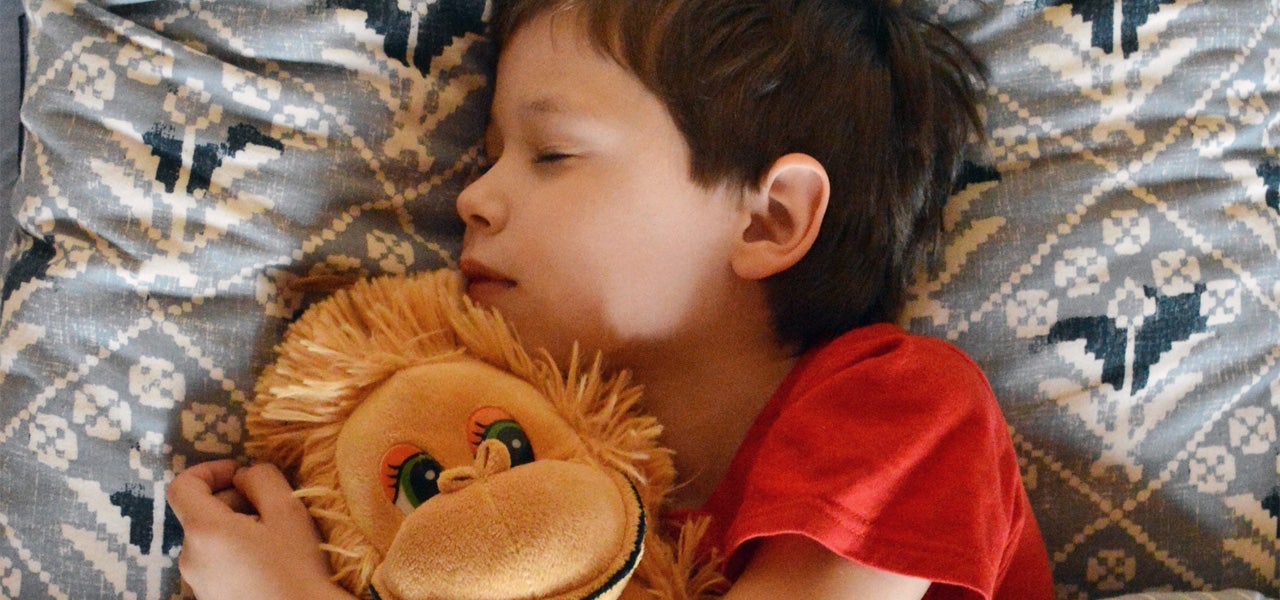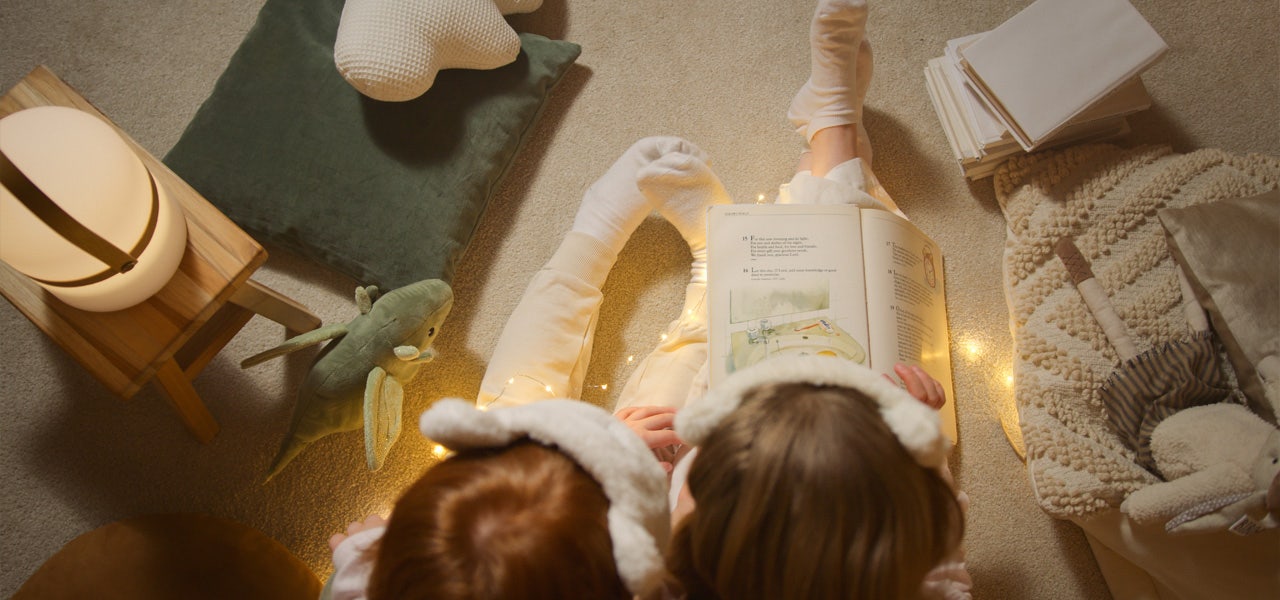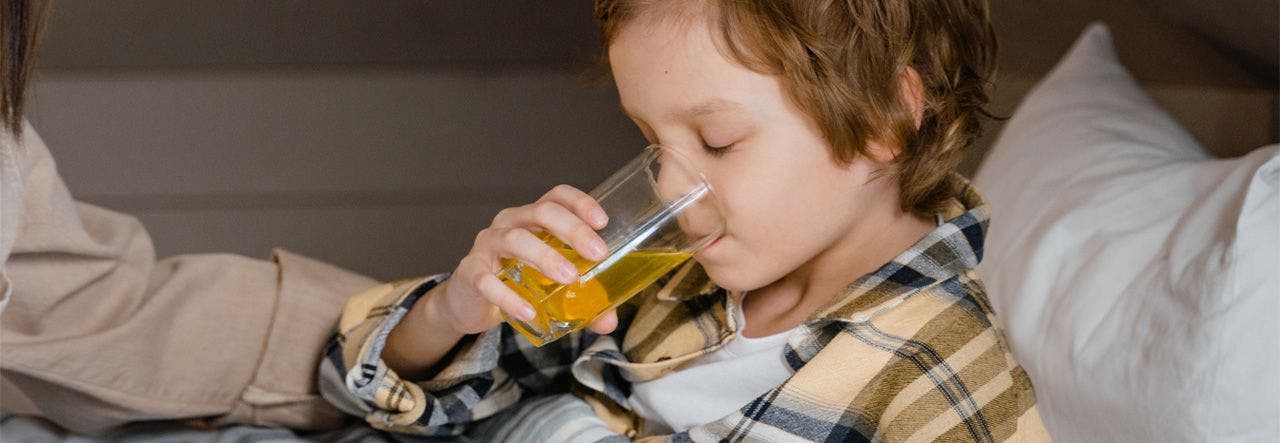Naturepedic is thrilled to welcome back our long-time friend Dr. Arthur Lavin to our blog! Parents, you’re sure to enjoy the access to helpful, health-related information from a trusted pediatrician. Check back monthly for posts from Dr. Lavin and, while you’re at it, check out his new podcast – ParentTalk!
Melatonin has become a medication millions now use to fall asleep. In the last few years, with the wild popularity of melatonin, families now use it frequently to help their children fall asleep. You can find gummy melatonin supplements for kids in many grocery stores, pharmacies and even dollar stores.
This should make everyone pause and ask the two most important questions about any drug or intervention:
- Does it work?
- Is it safe?
It’s especially important to understand the answers to these questions when you’re considering introducing a supplement to a child. Is melatonin safe for your child? I can walk you through some considerations.
What Is Melatonin?
Melatonin is a hormone. Hormones are chemicals that communicate signals that change the function of the body and mind. Perhaps the best known hormones include adrenaline, insulin and thyroid. Adrenaline causes the body to increase its metabolism and prepare for an urgency. Insulin helps move fuel around the body. And, the thyroid hormone regulates how rapidly our body’s metabolism functions.
Melatonin also plays a key role in a specific function of the body – sleep! It’s made by a tiny gland deep in the central regions of the brain called the pineal gland. This gland is built to be aware of our world around us being light or dark. The pineal gland releases melatonin when the world goes dark for the night.
What Does Melatonin Do?


Nearly every living cell has a rhythm to its function, and one of the most common rhythms is the circadian rhythm. The circadian rhythm sets up the body to vary its function according to whether it is day or night.
How tired or awake we feel is a primary function of our circadian rhythm. But, the body is actually responsible for controlling so much of that feeling. For example, your airways, or bronchi, get wider during daylight hours and constrict at night, every day, whether you have a cold or not. The body literally transforms every sundown and sunset.
The pineal gland, which you’ll remember produces melatonin, is one of the central information centers for processing whether our body is entering a new day or descending into night. It helps coordinate all the bodily changes that come with either shift. The pineal gland takes in nerve signals from the eyes, as well as signals from the key center in the brain, the supra-chiasmatic nucleus (SCN), and then responds by either making melatonin or ceasing to produce it.
Once released, the melatonin adjusts the signals from the SCN, so that the mind tires and readies for a full night’s sleep.
Key takeaway: Melatonin does not craft the complex symphony of sleep and does not maintain sleep. This is done more through the SCN. But melatonin does signal to the SCN to begin re-setting all the myriad settings of the body toward sleeping.
The Mystery of Sleep


With absolutely no exceptions, every person gets sleepy and sleeps. All animals do. So what’s the mystery? Simply put: what does sleep do?
Most think sleep is all about rest, but that turns out to be a trick the mind plays on us to force us to agree to sleep. The sleeping body is far from resting, with the heart pulsing with full strength, the kidneys filtering, all systems hard at work, even the brain. The real purpose of sleep appears to be to give our minds the chance
- Stop taking in new information
- Establish/organize memories from day
This is vital to life. Deny the brain this function by not sleeping and the mind begins to cease to function and the body eventually suffers too. With this understanding, it makes sense that many parents turn to melatonin supplements when their kids struggle to sleep.
Does Melatonin Work?
Millions of people share their experience that melatonin works amazingly well for them and for their children. This evidence is convincing that many, many people who take melatonin find that it effectively induces sleepiness and helps them propel the big change from being awake to falling asleep
So in that sense melatonin clearly works.
Another, very different question, is how well does melatonin work compared to placebo? How does falling asleep go when you take melatonin in comparison to when you take a sugar pill? The evidence still turns out to be very convincing that it works. Even in very ill adults who are very uncomfortable in ICUs, a trial of melatonin observed it helped them sleep.
Melatonin really does work. But, nothing is perfect. Some people given melatonin will see no impact. Many will, perhaps most.
Is Melatonin Safe?
The evidence is strong that melatonin is very, very safe. This is welcome news because as far as we know it is the only hormone that can be given with little, if any, risk. We now have the experience of millions upon millions of adults and children taking melatonin and no real harm has been experienced by essentially anyone.
There have even been formal trials comparing symptoms of people taking melatonin with people taking sugar pills, and both groups have the same number of minimal and mild symptoms. No serious side effects emerged as more likely in those taking melatonin compared to those taking placebo.
That is great news for the millions of people finding that using melatonin for sleep helps.
Is it a Good Idea to Use Melatonin for Your Child’s Sleep?


It is always a good idea, no matter how harmless, to not take a biologically active substance unless you really have to. Children tend to get sleepy very regularly and the best option is to use their natural rhythm of getting sleepy to arrange routines that help your children regularly fall asleep.
Melatonin is best used in situations where those natural rhythms get disrupted. For example, consider melatonin for your kids when an illness interrupts their ability to fall asleep, when travel disrupts natural rhythms (jet lag), or for whatever reason the natural routine gets disrupted.
Sometimes, children have stretches of time when their natural sleep rhythms battle their developmental interest in fighting sleep. The best approach to these struggles is an inventive routine that makes your child more interested in going to sleep. Such routines vary according to your child’s age, interests and preferences and can include such pleasant activities as a back rub, reading favorite books, singing favorite songs, rocking in a rocking chair in the arms of their parent, a warm bath, and many other such activities.
Dr. Lavin's Bottom Lines on Melatonin
- Sleep is the essential state the brain needs to experience every day in order to function, and being tired is the trick the mind plays to convince us it is time to go to sleep.
- The whole body acts to either increase the move toward sleep or waking, every moment of the day and night, as the sun rises, peaks and sets, and as night emerges.
- The eyes and all the cells of the body communicate this dance to a gland in the brain called the pineal gland that creates and releases the hormone melatonin in the evening.
- For most people, melatonin supplements work very well to induce sleepiness and move a person from awake to asleep.
- Melatonin is safe for kids. It is not addictive and has no more side effects than a sugar pill or placebo.
- Melatonin is most effective for parents to administer when their child struggles to sleep in short term events that interrupt the normal cycle of sleeping.
- Even though it works and is safe, do not let melatonin take the place of routines that calmly encourage your child to sleep
Here is to many nights of restful sleep for you and your child(ren)!
 BABY
BABY  KIDS
KIDS  ADULT
ADULT  LEARN
LEARN  STORES
STORES 
